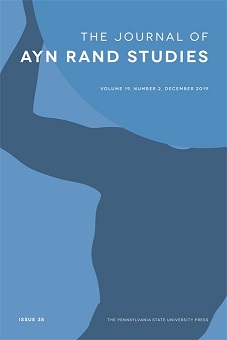NOTABLOG
MONTHLY ARCHIVES: 2002 - 2020
| OCTOBER 2019 | DECEMBER 2019 |
Mystery Solved: Cali: Calico or Tortoiseshell Cat?
So yesterday, Cali went in for her annual shots and general check-up and our
top-notch vet and dearest friend, Dr.
Linda E. Jacobson, found her in excellent health. Our little baby
behaved with complete subdued gentility---no running around at top speed, no
climbing on furniture, no dropping of large objects that make loud noises in the
middle of the night, no mischief whatsoever. In other words: Nothing like she is
at home.
But for those who have followed Cali's 2+ year journey as a member of our
family here, here,
and here,
we had thought Cali was a Calico
cat (from which her name was derived).
As it turns out, she's actually a Tortoiseshell
cat. Apparently, the Calico and the Tortoiseshell are very
closely related genetically.
Wikipedia tells us:
In the folklore of many cultures, cats of the tortoiseshell coloration are
believed to bring good luck. Dating back to Celtic times, tortoiseshell cats
have been perceived to bring good fortune into their homes. Even today, the
Irish and Scottish believe stray tortoiseshell cats bring them luck. In the
United States, tortoiseshells are sometimes referred to as money cats.
We haven't had any recent infusions of money. But she does bring good fortune.
She's about the most entertaining, loving, hilarious nutjob of a cat you'd ever
want as a family member! :)
Here she is today, hanging out on top of the recliner, as we get ready to sit
down for Thanksgiving dinner.

Posted by chris at 03:32 PM | Permalink |
Posted to Blog
/ Personal Business | Frivolity
Song of the Day #1733
Song of the Day: We
Gather Together is a Christian
hymn, derived from a Dutch poem, "Wilt
heden Nu Treden," written by Adrianus
Valerius, which celebrated the Dutch victory over the Spanish in the Battle
of Turnhout in 1597. It was later wedded to an 1877 score arrangement
of Eduard
Kremser, with English lyrics provided by musicologist Theordore
Baker in 1894. Recognized as an American hymnal in 1903 by the Hymn
Society in the United States and Canada, it was adopted by the Dutch
Reformed Church in 1937 as its first non-psalm-related hymnal, but
gradually made its way into the hymnals of many interdenominational
institutions, especially on this holiday. Check out various renditions of this
hymn from the Grace
Community Church in California, the Joslin
Grove Choral Society, and, finally, as a
tribute to the late actor John Ingle (who played the character of
Edward Quartermaine from 1996 to 2012 on "General
Hospital") [YouTube links]. Whatever one's religious beliefs or
nonbeliefs, I think of this hymnal on this Thanksgiving
Day as a way of counting the many blessings I have. And I wish all my
Notablog readers a "Happy
Thanksgiving" as they gather together with family and friends to
celebrate this holiday.
Posted by chris at 12:03 AM | Permalink |
Posted to Culture | Music | Religion | Remembrance
New December 2019 JARS: A Special "Atlas Shrugged" Symposium
It gives me great pleasure to announce the publication of a very special
December 2019 issue of The
Journal of Ayn Rand Studies. It features a symposium on
the occasion of the 60+ year anniversary of Rand's novel, Atlas Shrugged.
Indeed, it's a wonderful issue, and I hope readers will "think twice" about the
various provocative interpretations of Rand's novel as offered here. This issue
officially ends our nineteenth volume, preparing the way for our twentieth
anniversary celebration! It makes its debut on JSTOR and Project
Muse today, and will be headed to subscribers immediately thereafter.

As I state in the preface to the issue's symposium:
On 10 October 1957, Random House published Ayn Rand's novel Atlas Shrugged.
Now, more than sixty years after the publication of Rand's magnum opus, The
Journal of Ayn Rand Studies presents four essays offering dramatically
different perspectives on the novel�s meaning, context, and legacy.
Readers can find the abstracts to the articles listed below here and
the contributor biographies here.
As is our policy with every issue, new authors are welcomed to the JARS family:
Robert Genter and Samantha Ann Opperman are our two newest contributors.
Table of Contents - December 2019
Preface to the Symposium: Atlas Shrugged: Sixty-Plus Years Later - Chris
Matthew Sciabarra
"The Strike" Reborn: Ayn Rand, Revolutionary Literature, and the Postwar
American Novel - Robert Genter
Sexual Catharsis as an Experience of the Postfeminist in Ayn Rand's Atlas
Shrugged - Samantha Ann Opperman
Atlas Shrugged as
Epic - Troy Earl Camplin
The Representation of Trauma in Ayn Rand�s Novel Atlas Shrugged -
Anastasiya Vasilievna Grigorovskaya
Article
The Non-Contradiction of Determinism: Conditional Volition and Vanilla Ice Cream
- Roger E. Bissell
Index
Those interested in subscribing to the journal can get more information here and
those who are interested in submitting essays to the journal should visit our Penn
State Press Editorial Manager platform.
Posted by chris at 10:20 AM | Permalink |
Posted to Periodicals | Rand
Studies
Song of the Day #1732
Song of the Day: Park
Avenue Petite was composed by tenor saxophonist Benny
Golson. It first appeared on the 1960 album "Meet
the Jazztet," featuring trumpeter Art
Farmer and pianist McCoy
Tyner. Check it out here and here [YouTube
links]. In that same year, trumpeter Howard
McGhee recorded another melancholy
version [YouTube link] for his album "Dusty
Blue." But my favorite version is by Blue
Mitchell, which preceded both the Golson and McGhee recordings;
it was featured on his 1959 album, "Blue
Soul," with a group that included pianist Wynton
Kelly, trombonist Curtis
Fuller, tenor saxophonist Jimmy
Heath, bassist Sam
Jones, and drummer Philly
Jo Jones. Check out his haunting version here (and
a hat tip to my friend Brandon!). A blue song for a blue Monday in November.
A Small Reflection on a Big Wall
As the world was marking the thirtieth anniversary of the falling of the Berlin
Wall (November 9, 2019), I was going through some of my old yearbooks---from my
graduating years of elementary school (P.S. 215, June 1972), junior high school
(David A. Boody Junior High School, June 1974), and high school (John Dewey High
School, June 1977). Many treasured memories of days gone by.
But one thing jumped out at me, quite ironically. I could not get over how many
of my classmates signed my yearbooks with phrases such as: "To my friend Chris,
Love you until the Berlin
Wall falls!" I suspect they meant "forever"---because it seemed to
those of us who grew up in the shadow of the Cold War that this would be the
state of the world long after we were all gone.
Or to be more historically specific: We all have a tendency to reify our current
circumstances as if they are unalterable. I look back at any generation that has
faced what appear to be insurmountable difficulties: my parents, aunts, and uncles who
lived through World
War II and even my own generation that has lived under the shadow of
the Cold War, the threat of nuclear annihilation, and the post-Cold War events
that have unfolded since 9/11, coupled with the
exponential rise of political tribalism, economic
nationalism, and "progressive"
democratic socialism offered as panaceas. With a nod toward gallows
humor, I chuckle at Marx's classic maxim that history repeats itself, "the
first time as tragedy, the second time as farce."
But I think that, in the end, as witnesses to history, we cannot deny that
circumstances both echo the past and, at surprising moments in our lives, like
the events of thirty years ago, smash its most intractable assumptions.
I know the world is not a pleasant place nowadays; polarization on the home
front has not been this pronounced since the 1960s, in my humble opinion. But
for those of us who value human liberty, and the vigilance it takes to keep and
preserve it, there is a seemingly intractable paradox: The only thing that makes
the building of walls possible is the weakest of human desires, motivated
typically by fear---the desire to rule or to be ruled---because the prospect of
freedom is often overwhelming in the demands it places on personal
responsibility and the need to "step up" on behalf of the rights of our
neighbors. But the only thing that makes the falling of walls inevitable is the
more powerful human desire to embrace that freedom---and all the possibilities
it offers for the flourishing of the human condition.
So to my classmates from elementary school, middle school, and high school, I
know what you meant when you inscribed my yearbooks with that old Berlin Wall
metaphor. I can only offer a very small reflection on a very big wall: Love
endures longer than walls. And the fight for freedom requires the dismantling of
the walls that continue to separate and constrain us.
Posted by chris at 08:38 AM | Permalink |
Posted to Politics
(Theory, History, Now)
Rick Sincere, RIP
Yesterday, I learned of the passing of libertarian Rick
Sincere, a person I never met except through the miracle of the
Internet and social media.
I extend my heartfelt condolences to his family and friends. I know that I was
blessed by having interacted with him over the years, and I am deeply moved by
the outpouring of remembrances for him. Rick, RIP.
Posted by chris at 07:33 AM | Permalink |
Posted to Remembrance
Grace and Rosemary Share the Same OB-GYN?
If anybody tells me I've got too much time on my hands, it'll be "Bang,
Zoom!" [YouTube link].
I just happened to be watching episode 4 ("The
Chicken or the Egg Donor") of the reboot of "Will
and Grace" (season 11), and noticed that ol' SNL regular Vanessa
Bayer is back and that "In
Living Color" regular Ali
Wentworth made an appearance as Grace's OB-GYN (Grace is expecting a
child): Dr. Saperstein. Both had their hilarious moments.
But was I the only one to notice that Grace's doctor shares the same name with
another famous OB-GYN from film history? And I'm not talking about Henry
Winkler's "Dr. Saperstein" from the sit-com "Parks
and Recreation."
I'm talking about Rosemary Woodhouse's OB-GYN, Dr. (Abraham) Saperstein, played
by Ralph
Bellamy in the 1968 classic horror film, "Rosemary's
Baby" based on the famous Ira
Levin novel.
Now, I don't think that they are intending for "Will
and Grace" to take a demonic turn and I doubt that Grace is carrying
the Devil's progeny. But this just can't be a coincidence that a couple of
OB-GYN Dr. Sapersteins have shown up on TV shows in the post-1968 era! Has to be
a paean to
the horror classic. Or just an inside joke. Right? :)
Posted by chris at 10:56 AM | Permalink |
Posted to Film
/ TV / Theater Review
Sinatra Across the Generations
Hat tip to Stephen
Hicks for sharing this on Facebook, showing how the Chairman of the
Board, Ol' Blue Eyes, Francis Albert Sinatra, reaches across the generations;
check it out here.
It brought to mind my own multi-week Centenary
tribute to Sinatra back in 2015.